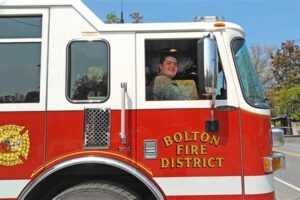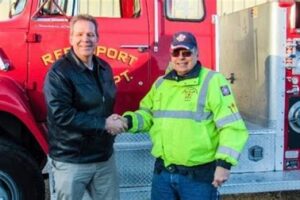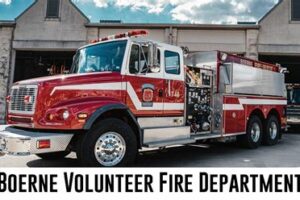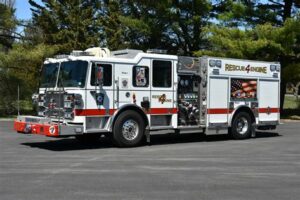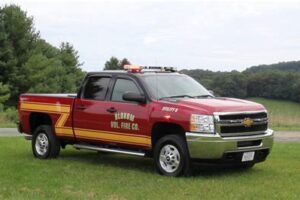Table of Contents
Volunteer Fire is a dedicated group of individuals who selflessly donate their time and skills to protect and serve their community. These brave volunteers respond to emergencies, such as fires and accidents, providing critical assistance when it is needed the most. Learn more about the important work these everyday heroes do to keep us safe.
Volunteer fire departments are the unsung heroes of our communities, selflessly dedicating their time and expertise to protect and serve others. In a world where paid firefighters often steal the limelight, these courageous men and women work tirelessly behind the scenes, driven by an unyielding sense of duty. Despite the challenges they face, from limited resources to grueling training sessions, their commitment to safeguarding lives and property remains unwavering. With a steadfast determination and a spirit of camaraderie, volunteer firefighters rise to the occasion, ready to battle raging infernos and lend a helping hand in times of crisis. Such acts of bravery and selflessness truly embody the essence of community service and remind us of the power of ordinary individuals coming together for an extraordinary cause.
The Heroic Efforts of Volunteer Firefighters
Every day, across towns and cities around the world, there are individuals who selflessly dedicate their time and energy to protect their communities. These unsung heroes are volunteer firefighters, brave men and women who respond to emergencies without any monetary compensation. As pillars of strength and resilience, volunteer firefighters play a crucial role in keeping our neighborhoods safe. In this article, we will explore the incredible work they do, the challenges they face, and the profound impact they have on society.
Training and Preparation
Before donning their uniforms and rushing towards danger, volunteer firefighters undergo rigorous training. These men and women receive instruction in fire suppression techniques, emergency medical services, hazardous material response, and search and rescue operations. The training is comprehensive, ensuring that they are well-prepared to handle any situation that may arise. Despite the demands of their regular jobs and personal lives, volunteers willingly invest their time in acquiring the necessary skills to keep their communities safe.
Providing Essential Equipment and Resources
While volunteer firefighters may not receive salaries, fire departments ensure they have access to the necessary equipment and resources. From firefighting gear, such as helmets, fire-resistant suits, and breathing apparatus, to vehicles, hoses, and other essential tools, these selfless individuals are equipped with everything they need to respond effectively to emergencies. Fire departments rely on community contributions, grants, and fundraising efforts to provide this vital equipment, illustrating the importance of community support in enabling these volunteers to carry out their duties.
Rapid Response and Emergency Services
When the alarm sounds, volunteer firefighters spring into action, racing to the scene of a fire or accident. Their rapid response time is crucial in preventing further damage and saving lives. Volunteer fire departments often work in collaboration with professional firefighters, ensuring a coordinated effort to tackle emergencies. In addition to extinguishing fires, these dedicated individuals also provide emergency medical services, assisting those in need until paramedics arrive. Their ability to act swiftly and decisively in high-pressure situations is truly commendable.
Challenges and Sacrifices
The life of a volunteer firefighter is not without its challenges and sacrifices. Many volunteers juggle their duties with full-time jobs, family responsibilities, and personal commitments. They willingly put their lives at risk, facing dangerous and unpredictable situations to protect others. The toll on their physical and mental well-being can be immense, yet their dedication remains unwavering. These selfless individuals often spend countless hours away from their loved ones, ready to respond at a moment’s notice.
A Strong Sense of Community
Volunteer firefighters are deeply rooted in their communities. They form strong bonds with fellow firefighters and the residents they serve. Their commitment to protecting lives and property brings people together, fostering a sense of unity and support. Volunteer fire departments often organize community events and initiatives, promoting fire safety education, and providing opportunities for citizens to engage with their local heroes. This interconnectedness creates a safer and more tightly knit community, where everyone plays a role in maintaining security.
Recognition and Appreciation
The invaluable contributions of volunteer firefighters should never go unnoticed. These brave men and women deserve recognition and appreciation for their selfless service. Communities can express gratitude by participating in fundraising events, volunteering at fire departments, or simply expressing thanks. Local governments and organizations can also play a role in acknowledging the dedication of these volunteers through awards and public recognition. Celebrating their efforts not only boosts morale but also encourages others to join this noble cause.
The Profound Impact
The impact of volunteer firefighters extends far beyond immediate emergency response. Their presence and commitment to community safety instill a sense of security and peace of mind among residents. They inspire others, especially young people, to consider careers in public service and contribute towards building a safer society. Volunteer fire departments also play a vital role in disaster preparedness, educating the community about fire prevention and evacuation techniques. The tireless efforts of these volunteers create a ripple effect, making our neighborhoods more resilient and prepared.
Securing the Future
As the challenges faced by fire departments evolve, it is essential to secure the future of volunteer firefighting. Encouraging recruitment, providing ongoing training opportunities, and ensuring adequate funding for equipment are crucial steps in maintaining the strength of these departments. Recognizing the dedication and sacrifices made by volunteer firefighters through improved benefits and support systems can also help attract new volunteers and retain existing ones. By investing in their future, we invest in the safety and well-being of our communities.
In conclusion, volunteer firefighters are the unsung heroes who selflessly dedicate their time, skills, and energy to protect our communities. Their training, rapid response, and unwavering commitment make them pillars of strength during emergencies. As a society, it is our responsibility to recognize and appreciate their efforts, ensuring they have the resources they need to carry out their duties effectively. The impact of volunteer firefighters extends far beyond the immediate response, creating safer and more resilient communities for generations to come.
The Important Role of Volunteer Firefighters in the Community
In small towns and rural areas across the country, volunteer firefighters play a critical role in ensuring the safety and well-being of their communities. These dedicated individuals selflessly give their time and effort to protect lives and property, often without any monetary compensation. With their training and commitment, volunteer firefighters are an indispensable force that provides initial response during emergencies until professional firefighters arrive.
Challenges Faced by Volunteer Fire Departments
While volunteer firefighters make invaluable contributions to society, they often grapple with numerous challenges. Limited funding and resources, coupled with a lack of manpower, can prove to be major obstacles. Additionally, the need to balance their firefighting responsibilities with day jobs and family commitments places a tremendous strain on these brave volunteers. Nevertheless, their determination and passion drive them to overcome these hurdles and continue serving their communities.
The Training and Skillset of Volunteer Firefighters
Volunteer firefighters undergo rigorous training to ensure they are equipped with the necessary skills to handle emergency situations. From learning to operate fire trucks and equipment to practicing fire suppression techniques, these individuals acquire the knowledge and expertise required to respond effectively to various scenarios. They are trained in search and rescue operations, hazardous materials management, and emergency medical response, making them versatile first responders.
Volunteer Fire Departments as a Lifeline in Rural Areas
In sparsely populated rural areas, volunteer fire departments often serve as the sole lifeline for emergency services. Given the vast distances between these communities and professional fire stations, volunteer firefighters are the first line of defense in battling fires and providing medical assistance. Their presence ensures that help arrives swiftly, minimizing the potential loss of life and property in these remote regions.
The Economic Impact of Volunteer Firefighters
Volunteer firefighting not only saves lives, but it also provides significant economic benefits to the communities they serve. The absence of paid full-time firefighters in these areas leads to substantial cost savings in personnel expenses. Without the burden of financing salaries, benefits, and pensions, local governments can direct their limited resources towards other essential services, infrastructure development, or community programs.
Volunteer Firefighters as Community Heroes
Volunteer firefighters are often unsung heroes who epitomize selflessness, bravery, and dedication. They selflessly put their lives on the line without expecting anything in return. Their commitment to serving others, even in the face of danger, deserves recognition and appreciation from the communities they safeguard. Their sacrifice and bravery make them an inspiration to aspiring firefighters and a demonstration of the power of community spirit.
Recruiting and Retention Challenges for Volunteer Fire Departments
Facing an aging demographic and a decrease in volunteers, many fire departments struggle with recruiting and retention efforts. The demanding time commitment, physical demands, and risk associated with firefighting deter potential volunteers. In response, departments employ various strategies such as recruitment campaigns, community outreach, and offering incentives like tax breaks or tuition assistance to attract and retain new volunteers.
The Future of Volunteer Firefighting
As the face of communities continues to evolve, the future of volunteer firefighting must adapt to changing needs. Ensuring adequate resources, focusing on recruitment efforts, and implementing innovative training methods are crucial for sustaining volunteer fire departments. Recognizing the invaluable contributions of these selfless individuals and addressing the challenges they face are key to maintaining their vital role in safeguarding the communities they serve.
As a journalist, it is crucial to present information in a clear and objective manner. When it comes to discussing the use of volunteer fire departments, it is important to consider various perspectives and provide a comprehensive analysis. Here is a point of view on the topic:
1. Introduction:
Volunteer fire departments play a significant role in communities across the country, providing essential emergency services without financial compensation. This article aims to explore the use of volunteer firefighters, examining their contributions, challenges they face, and the impact they have on local communities.
2. Contributions of volunteer firefighters:
– Volunteer firefighters selflessly dedicate their time and expertise to ensure the safety and well-being of their communities.
– They respond to emergencies promptly, often putting themselves at risk to save lives and protect property.
– The presence of volunteer fire departments helps bridge the gap in areas where professional fire services may be limited or nonexistent.
3. Challenges faced by volunteer firefighters:
– Limited resources and funding pose significant challenges for volunteer fire departments, impacting their ability to maintain adequate equipment and training.
– Balancing their commitment to firefighting with personal and professional responsibilities can be demanding for volunteers who juggle multiple roles.
– Recruitment and retention of volunteers can be a struggle, as the demands and risks associated with firefighting often deter potential candidates.
4. Impact on local communities:
– Volunteer fire departments serve as pillars of community strength, fostering a sense of unity and resilience among residents.
– Their presence provides reassurance and peace of mind to individuals, knowing that help is readily available when emergencies occur.
– The work of volunteer firefighters positively impacts insurance rates within communities, as their presence helps lower premiums due to improved fire protection ratings.
5. Conclusion:
The use of volunteer fire departments remains an essential component of emergency services in many communities. Despite the challenges they face, volunteer firefighters continue to make invaluable contributions towards ensuring public safety. It is crucial for communities and policymakers to recognize their dedication and provide the necessary support to sustain and strengthen these vital organizations.
Thank you for taking the time to visit our blog and learn more about the invaluable work of volunteer firefighters. These selfless individuals dedicate their time and effort to ensure the safety and well-being of their communities. As we bring this article to a close, let us reflect on the importance of their role and the impact they have on our lives.
Firstly, it is crucial to acknowledge the immense bravery displayed by volunteer firefighters. These everyday heroes willingly put themselves in harm’s way to protect others without expecting anything in return. Whether battling raging wildfires, responding to medical emergencies, or rescuing people from dangerous situations, their commitment to serving others is truly commendable. Their tireless efforts often go unnoticed, but they are the backbone of our communities, providing a sense of security and peace of mind.
Furthermore, volunteer firefighters embody the true spirit of unity and community. They come from all walks of life, united by a common goal – to ensure the safety and well-being of their fellow citizens. In times of crisis, they selflessly drop everything to respond to emergencies, working seamlessly with other first responders and agencies. The bond formed within these fire stations extends beyond the call of duty, becoming a second family for these brave men and women. Their unwavering dedication serves as an inspiration to us all, reminding us of the power of collaboration and the importance of supporting one another.
In conclusion, volunteer firefighters play an essential role in our society, often operating under challenging circumstances and limited resources. Their unwavering commitment, bravery, and sense of community make them true heroes. It is crucial that we recognize and appreciate their sacrifices, not just during times of crises but every day. Whether through donations, volunteering our time, or simply expressing our gratitude, we can all contribute to supporting these extraordinary individuals and ensuring the safety of our communities. Together, let us celebrate and honor the selfless service of volunteer firefighters, the backbone of our society.
.
1. What is a volunteer fire department?
A volunteer fire department, commonly known as VFD, is a group of individuals who are trained and organized to provide fire protection and emergency services within their community. Unlike career fire departments, volunteers willingly offer their time and expertise without receiving a salary.
2. How do volunteer firefighters differ from professional firefighters?
Volunteer firefighters differ from professional firefighters primarily in the fact that they are unpaid for their services. While both groups undergo similar training and respond to emergency situations, professional firefighters are full-time employees of a fire department, whereas volunteers often have other jobs and dedicate their spare time to firefighting.
3. What motivates people to become volunteer firefighters?
People choose to become volunteer firefighters for various reasons. Some are driven by a strong sense of community service and a desire to help others in times of crisis. Others may have personal connections to firefighting or simply find the profession exciting and fulfilling. Additionally, volunteering as a firefighter can be an excellent way to learn new skills and gain valuable experience for those interested in pursuing a career in firefighting.
4. Are volunteer firefighters adequately trained?
Yes, volunteer firefighters undergo comprehensive training to ensure they are equipped with the necessary skills to handle emergencies effectively. Training programs typically cover firefighting techniques, first aid, hazardous materials handling, and equipment operation. Many volunteer fire departments also conduct regular drills and exercises to keep their members prepared and up to date with the latest firefighting practices.
5. How do volunteer fire departments fund their operations?
Volunteer fire departments rely on a combination of funding sources to support their operations. These may include government grants, donations from individuals and businesses, fundraisers, and sometimes a portion of local property taxes. Additionally, some volunteer fire departments may charge fees for certain services, such as responding to vehicle accidents or providing specialized assistance.
6. Can volunteer firefighters respond to all types of emergencies?
While volunteer firefighters are trained to handle a wide range of emergencies, the scope of their response may vary depending on the resources available within their department. In many cases, volunteer fire departments work in coordination with neighboring professional departments to ensure that all necessary emergency services are provided. This collaboration allows for a more comprehensive response to various incidents, including fires, medical emergencies, and natural disasters.
7. Can anyone join a volunteer fire department?
Most volunteer fire departments welcome individuals who meet certain criteria, such as being physically fit and of legal age. However, specific requirements may vary depending on the department and the jurisdiction it operates in. Prospective volunteers typically need to complete an application process, pass background checks, and successfully complete the required training programs before becoming active members of the department.
8. Are there any benefits to volunteering as a firefighter?
Absolutely! Volunteering as a firefighter offers numerous benefits. Apart from the satisfaction of serving one’s community and making a positive impact, volunteers gain valuable skills in firefighting, emergency response, teamwork, and leadership. They also become part of a close-knit community of like-minded individuals who share the same passion for public service. Volunteering can be personally rewarding and provide a unique sense of purpose.

